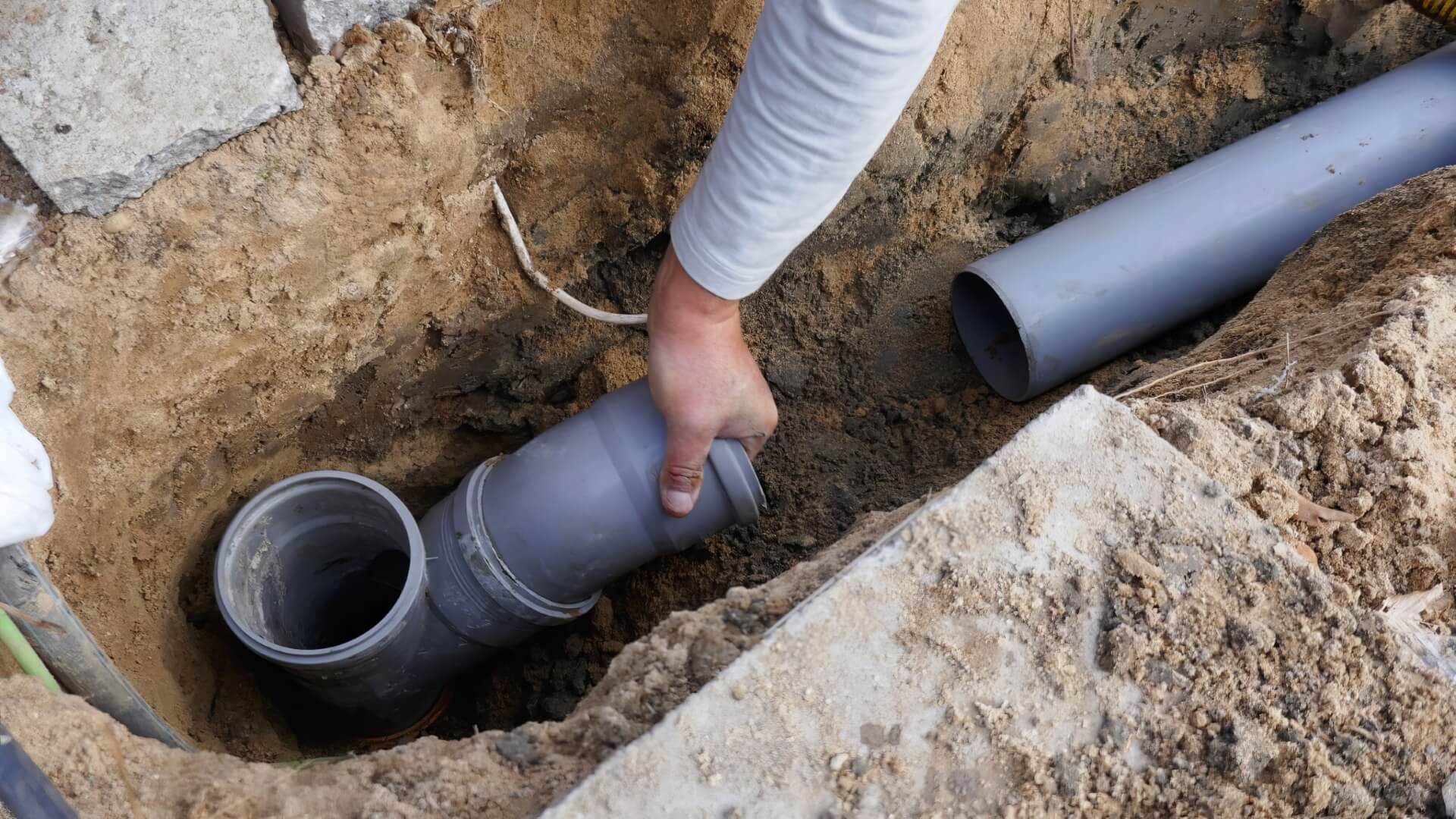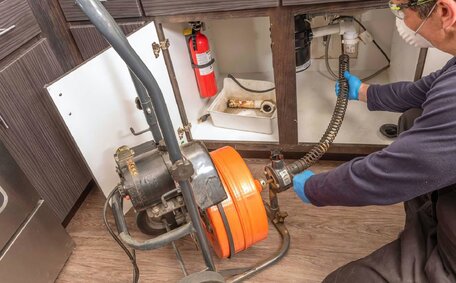Introduction to Preventing Blocked Sinks
Dealing with a blocked sink in your kitchen can be extremely frustrating and impaired functionality of your sink can cause significant inconvenience. Simple remedies can effectively allow water to drain properly, preventing standing water, foul odours, and backed-up pipes. Taking steps to prevent blocked drains is crucial for avoiding these nuisance blockages.
Improper disposal of food waste, fats, oils, hair, and other debris is a leading cause of household drain clogs. This material accumulates over time into a dense mass that can block water flow. Adopting proactive measures is truly your best approach to make sure blockages don’t find their way into maintaining clear sinks.
This article will provide simple, practical tips prevent blocked kitchen sinks and detail common causes homeowners can follow to stop clogs before they start. Learning proper waste disposal habits and implementing basic drain maintenance is the best way to ensure smooth, trouble-free sink operation for years to come.
Understanding What Causes Blocked Sink Drains
Fats, oils, and food particles gradually coat and cling to the inside of drainage pipes.
In kitchen sink drain, the main culprits for a blockage can be fats, oils, and food debris. Over time, this material accumulates and hardens, which can lead to blockage of water flow. Common causes for blockages include excessive toilet paper flushed down toilets in kitchens and bathrooms.
Your blocked shower drain can frequently become clogged resulting from hair soap residue. Soap scum compounds the issue by adhering to hair and pipe walls.
As hair washes down the drain, it tends to catch on any rough or textured surface. Just like in kitchen drains, the gradual buildup eventually narrows pipes and causes stubborn clogs.
Understanding what leads to a blocked kitchen sink is important for prevention. By being aware that fat oil grease causes blockages, steps can be taken to stop them before they occur. Applying a seal over drain with proper disposal of fats, oil, and grease, alongside regular maintenance and the use of sink strainers are all employed as effective ways to avoid the frustration of a blocked sink.
Using Sink Strainers and Traps
Installing sink strainers can help prevent debris from finding its way into your drainage and causing stubborn clogs. Sink strainers, also called drain screens, fit into drains your sink, featuring small perforations that allow water to pass through while catching food scraps, hair, and other particles.
As debris gradually accumulates in the sink strainer, there are things can do like the simple task of removal and discard it before it ever reaches the pipes. This approach keeps your drain water clear and flowing smoothly. Your bathroom sinks, shower drains, kitchen sinks, utility sinks, and laundry sinks can all benefit from the installation of sink strainers.
Another useful device, in addition to avoiding the flushing of wet wipes, is a mechanical sink trap, often found integrated into modern sink drain piping. Traps hold a small amount of water that blocks sewer gases from entering while allowing waste water through drains can pass. Any debris passing through a strainer gets captured in the trap rather than moving further into the drainage system.
By installing sink strainers and taking advantage of trap functionality, homeowners can protect your house from debris getting into kitchen sink drains from many common blockage causes. This first line of defence helps prevent debris from reaching the drain pipe which leads to backed-up drains and should be paired with additional maintenance tips for the best prevention.
Avoiding Grease Buildup
One of the most common causes of kitchen sink clogs is grease buildup, akin to the clogging effects of coffee grounds, from fats, oils, and cooking grease. Allowing these substances to go down the drain can cause accumulation along pipe walls over time. As grease sticks and hardens, it traps food particles and progressively narrows drains.
It’s critical to keep fats, oils, and grease out of the plumbing system. After cooking, avoid pouring used cooking oil or grease down the sink. Allow it to cool and solidify, then throw them in the trash. It’s critical to keep fats, oils, and grease out of the plumbing system.
When doing dishes with stuck-on grease oil, allow a degreasing soak first rather than grinding up larger food scraps in the garbage disposal. Given more time, more grease than one might think can also build up so it’s best to remove as much as possible through these simple habits before washing.
Implementing these minor changes helps avoid accumulation that could damage your plumbing. By diverting fats, oils, and grease from sinks, blocked pipes due to clog-causing build up is prevented.
Regular Maintenance to Clear Debris
Regular maintenance and correct use of sink tools and disposal are essential to prevent debris accumulation and clogged drains. Simple practices like using your own boiling water poured down the drain weekly can help maintain your plumbing by dissolving grease deposits and flushing away accumulated scrap particles before they create a blockage.
Using garbage disposal sparingly and employing a drain strainer can simplify debris removal, thus preventing blockages. These strainers can be emptied out, your garbage disposal receiving the collected debris, at least weekly.
For bathroom sink drains prone to clogged drain hair, using an enzyme drain cleaner monthly will break down not just the hair but also the fats, oils, and soap scum that’s washed down and sticks to pipes over time. Enzyme cleaners are formulated to digest the organic matter such as buildup hair causing clogged drains but won’t harm pipes.
Staying vigilant with maintenance steps prevents troublesome debris build-up and avoids drain clogs. Understanding how to prevent blocked drains through early intervention is key rather than trying to clear a complete blockage.
DIY Drain Cleaning Methods
Before calling a plumber, try some simple DIY methods to clear clogged drains. This reaction can effectively break down clogs composed of hair, grease, and other debris. Let it sit for 5-10 minutes before pouring a pot of boiling water into the drain to flush everything down.
A common home remedy is mixing one cup baking soda with one cup vinegar and pouring it down the clogged drain.
For bathroom sinks, remove the drain trap and use a plumbing snake to take out accumulated hair and soap scum. Compressing a plunger multiple times over drain creates pressure that may dislodge clogs.
Prevention is best, but when dealing with a blocked drain, these natural solutions provide an affordable starting point. Seek professional help for your blocked drain that won’t clear this way or continually backup. Persistent blockages likely indicate larger issues in the plumbing system needing inspection.
Natural Cleaners Like Baking Soda and Vinegar
Natural ingredients such as baking soda, vinegar, and boiling water can safely break down build-up and prevent drain clogs. One easy Homemade drain cleaner simply combines 1 cup baking soda and 1 cup white vinegar, working magic inside your pipes.
For natural cleaning, pour baking soda followed by vinegar into the drain, then flush with boiling water. The resulting chemical reaction helps clean your pipes by dissolving grease, hair, and other debris that goes down drain into them. Let the mixture sit for 5-10 minutes before flushing with a pot of boiling water, a method better than harsh chemicals.
For routine maintenance, pour 1/2 cup baking soda down the drain weekly, followed by pouring hot water down the drain. Baking soda acts as a gentle abrasive to scrub pipe walls, while hot water dissolves and flushes away debris. Take care not to overuse this method as large amounts of baking soda can get rid of beneficial pipe bacteria.
Vinegar and baking soda drain cleaners provide a safe, affordable, and effective way to keep drains clear. When used properly, These methods effectively prevent buildup and ensure water flows freely down the drain.
When to Call a Professional Plumber
While preventative measures and DIY drain cleaning methods may solve minor clogs, severe or recurring blockages often require a professional plumber’s expertise. If water fails to drain at all, overflows from the sink, or drainage seems abnormally slow, the problem likely extends beyond basic buildup requiring a skilled inspection.
Intruding tree roots around your garden can infiltrate and fracture drainage pipes underground. These cracks enable soil, sand, leaves twigs, and root fragments to enter your home’s sewer line and accumulate into a formidable drain blockage. Detecting and addressing root intrusion issues demands specialised drain cleaning equipment to clear out blockages and restore proper flow.
For persistent clogs, mysterious foul odours, backed up water flow, or complex plumbing repairs, Drummoyne Plumbing offers reliable service. As licenced plumbers, we possess state-of-the-art equipment and other types of technology to fully diagnose problems. We keep current with the latest methods and technology for clearing all types of residential and commercial drain blockages.
Don’t hesitate to contact our friendly staff at 1300 349 338 or [email protected].
Our emergency plumber is available 24/7 to provide assistance when you face severe flooding, sewage backups, or urgent blockage issues. Our upfront pricing and quality workmanship aim to solve problems properly the first time - preventing inconvenient return visits.
Preventing Blocked Drains Long-Term
Implementing preventative measures is the most effective long-term approach to avoid blocked drains. Pouring fats, oils, and grease into your kitchen sink causes damage, a point often emphasized by plumbers. Allow these substances to solidify before tossing them in the trash.
Make habits like using sink strainers, wiping grease from dishes, and flushing your drain pipes weekly with baking soda and hot water part of your routine.
Be proactive by looking for signs blocked drains exhibit immediately before they turn into a complete clog. Use a plunger or homemade drain cleaner at the first sign of trouble. Our skilled team possesses state-of-the-art drain cleaning equipment to tackle troublesome blockages and identify underlying problems.
For persistent or when noticing signs blocked drain issues, don’t hesitate to call the professionals at Drummoyne Plumbing on 1300 349 338.
Vigilance with preventative maintenance, employing natural cleaning methods at early signs of clogs, and seeking a plumber for significant issues are key to long-term, clog-free drains. Good household habits prevent blockages, ensuring smooth drainage for years.






